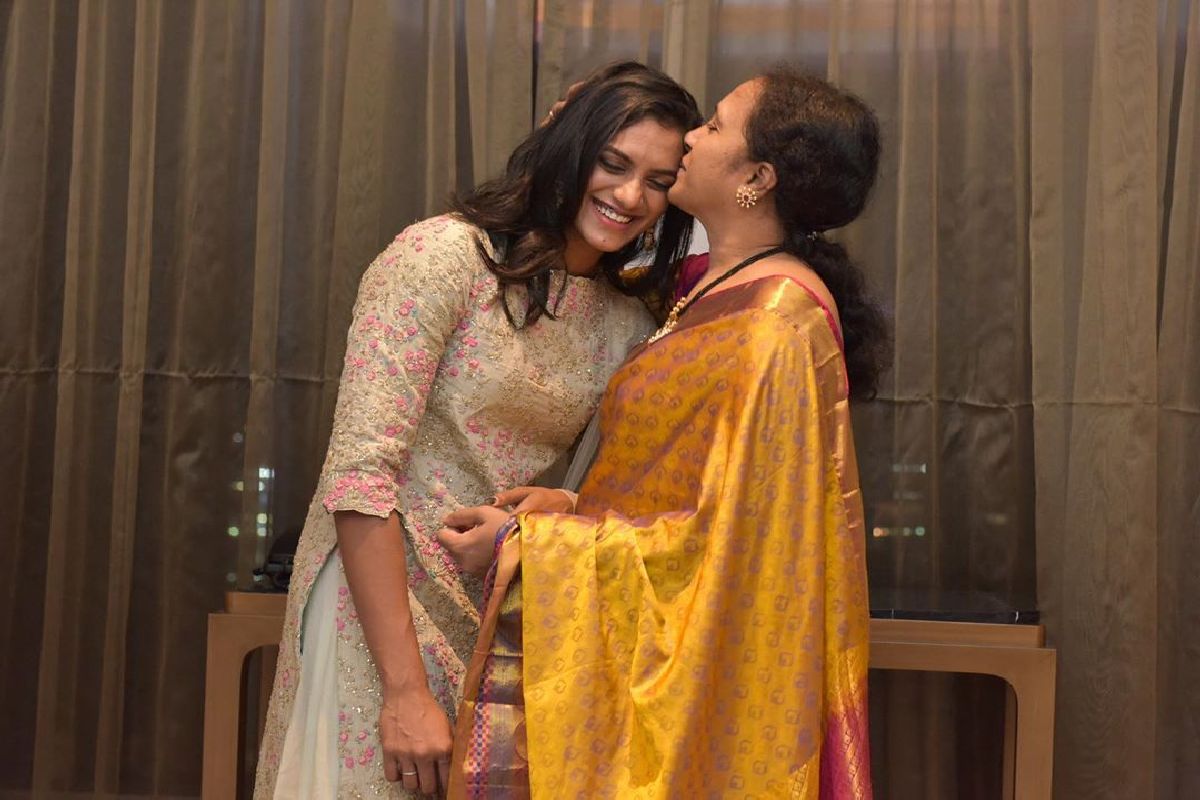Is India set to become the new beauty destination for global brands?
The Indian beauty market is estimated to reach $2.27 billion by 2028, with a CAGR of 10.91% during the forecast period (2023-2028).
She faced her interrogator simply, without anything even remotely suggestive of a fuss.

PV Sindhu with her mother. (Instagram/@pvsindhu1)
If India were England, well might the question have been dubbed a Daily Mail one, a banana skin for a targeted celebrity to step on and fall face down, making sure the tabloid would sell briskly yet another day across London.
There was PV Sindhu, meeting journalists virtually after winning the women’s singles badminton bronze in the Tokyo Olympics the other day, happy to have been able to follow a heart-breaking loss with a splendid victory which had been nothing short of stunning in terms of the way it was achieved.
The men, and women, of the media were going about their job, as they were required to, thinking up and asking hopeful questions that would yield insights and, perhaps, just the sort of headline that would have heads out in the street, near the kiosk where the papers dangle from a length of rope, turning to it with eager eyes.
Advertisement
So the risk had to be run. “Did (Pullela) Gopichand congratulate you after you’d won?” He had, came the answer. In fact, he has never failed to do so whenever he has been away from one of Sindhu’s by-nowso-many scenes of triumph. But that was only setting her up for the next one, quite clearly intended to wring an answer that would cause the breakfast omelette to be left untouched in so many households the day after.
“Did Saina (Nehwal) call you?” Sindhu would have known that she was playing a game of psychological chess with people who, when she had lost her previous match in the Olympic Games, had said that she’d been diffident, lost points on her own service and played feebly at the net.
She faced her interrogator simply, without anything even remotely suggestive of a fuss. Nehwal hadn’t. And it was not as if each in the duo considered a day frittered unprofitably away if she did not communicate with the other with a sense of urgency driving her into the effort. Simple, and very, very honest.
You don’t have to call a spade a shovel. Nor should you, unlike many people in everyday life, beat about the bush, drifting away from the truth. Days before the Olympics, her father, PV Ramana, had calmly told this newspaper ~ when Covid-19 invaded Tokyo’s controlled Olympic residential facility ~ that he would only ask his daughter to be additionally cautious. No more and no less.
The same equanimity had distinguished him when his own medal-related wish was asked about. “Winning any medal is tough,” he said, adding: “It’s not easy to win anything where the world’s best players compete.” But Sindhu wins habitually. It is like the everyday rise of the sun in the east.
She is the first Indian woman to have brought home medals from successive Olympics, she has as many as five from the world championships inclusive of gold, her Commonwealth Games collection stands at three and Asian Games tally is two. She is an exceptional one.
It does not really get much better than that, which underscores how she has gone way past competitors who might once have suggested rich possibilities but did not go on to equal Sindhu’s spectacular achievements. In Tokyo, of course, she was India’s brightest prospect and could again be so in Paris, four years later.
And if you think of the pressure of the country’s popular expectations she took in her stride in the run-up to Tokyo, she is already up there with the greats of the Indian sporting galaxy, the dream girl.
Advertisement